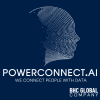Dive Brief:
- A new study published by Harvard University, and funded by the Hewlett Foundation, disputes the notion that surveillance agencies are struggling with a data blackout.
- The report includes contributions from technical experts, U.S. government counterterrorism officials, civil liberty advocates and Harvard law academics.
- The report also said that the projected substantial growth in the number of networked sensors/IoT devices has the potential to “drastically change surveillance.”
Dive Insight:
Over the last several years, intelligence agencies have claimed that the growing use of end-to-end encryption by technology companies has left them in the dark. But the Harvard study argues that they may be overstating things.
Instead of a data blackout, there are now more opportunities for surveillance with the rise of Internet connected devices. Many accompanies also rely on data-mining their own users, so it would not make sense for them to heavily encrypt the IoT data, according to the report.
The aim of the report is to bring a more balanced perspective to the policy debate around surveillance, said Jonathan Zittrain, a professor of Internet law at Harvard.
“We managed to do that in part by thinking of a larger picture, specifically in the unexpected ways that surveillance might be attempted,” he said.
The debate over personal privacy online continued to grow as people become more and more connected to the Internet. Some have called for efforts that would weaken encryption to make it easier for the government to monitor communications. But technology companies and privacy advocates oppose that idea, warning that weaker encryption would expose data to hackers.














